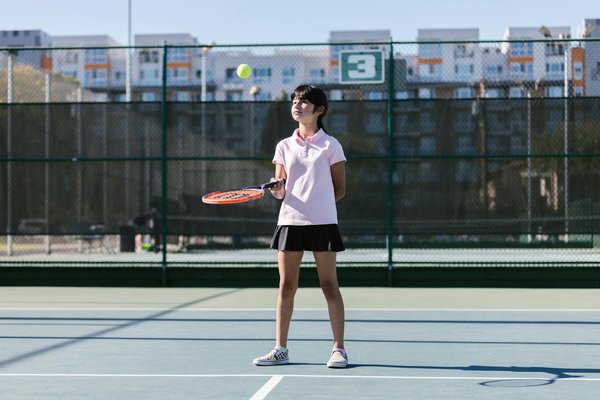Defining Niche Sports in the UK
Niche sports UK refers to athletic activities that, while practiced and followed by dedicated communities, remain outside the mainstream spotlight. The definition of niche sports hinges on their relatively smaller participant numbers and limited media coverage compared to popular sports like football or cricket. These sports often thrive on passionate, tight-knit groups rather than mass public attention.
Examples of niche sports include squash, ultimate frisbee, fencing, and korfball. Each has a distinct fan base and competitive structure but lacks the widespread recognition of traditional UK sports. These examples of niche sports also tend to receive less funding and fewer facilities, yet they provide unique opportunities for participants seeking alternative or specialized sporting experiences.
The role and significance of niche sports in the UK is multifaceted. They enrich the sporting landscape by fostering diversity, inclusivity, and innovation. Many niche sports act as gateways to healthier lifestyles and community bonding, often introducing creative rules and formats that can influence mainstream sports. Understanding niche sports UK is crucial to appreciating the full breadth of the country’s athletic culture and supporting its future growth.
Forms of International Collaboration in Niche Sports
International collaboration in niche sports encompasses various partnership models designed to expand the reach and impact of lesser-known disciplines. Key forms include knowledge sharing, where organisations exchange best practices, training methods, and coaching expertise to raise competitive standards globally. Another crucial model is athlete exchange programs, which allow players from different countries to train and compete abroad, enhancing their skills and cultural understanding.
Additionally, joint competitions bring together international participants, providing valuable exposure and fostering a spirit of healthy rivalry. Funding initiatives often accompany these partnerships, supporting events, development programs, and infrastructure improvements. For example, collaborations between UK-based bodies and international organisations frequently involve shared governance structures, ensuring equitable decision-making and resource distribution.
Cross-border partnerships are vital for niche sports, which may lack substantial domestic support. By joining forces internationally, these sports gain wider recognition, improved facilities, and increased participation. This approach is not only practical but essential for sustaining growth and competitiveness in the global arena. Understanding the nuances of various partnership models helps stakeholders design effective strategies that benefit athletes and the sport community alike.
Key Benefits of International Collaborations for UK Niche Sports
Collaborating internationally offers several benefits of international collaboration that are crucial for UK niche sports development. One major advantage is the enhanced skill development athletes and coaches gain through exposure to diverse training techniques and coaching methodologies. Learning from global expertise helps raise performance standards and introduces innovative strategies uncommon in the domestic arena.
Additionally, international partnerships often open doors to improved sports funding opportunities. Access to international resources can include sponsorships, grants, and shared infrastructure, reducing the financial strain many niche sports face in the UK. This financial boost is vital for sustaining programs and expanding grassroots participation.
Furthermore, working with international partners significantly increases the visibility and exposure of niche sports. Showcasing these sports on a broader stage helps attract media attention, sponsors, and new fans within the UK. This greater exposure not only elevates the sport’s profile but also encourages greater community engagement and support.
In summary, international collaboration strengthens UK niche sports by fostering skill development, expanding funding, and amplifying awareness, making it a strategic pathway for future growth.
Real-world Examples: Case Studies in the UK
In recent years, UK niche sports have greatly benefited from international partnerships, resulting in noteworthy success stories. One compelling case study involves the collaboration between a British climbing federation and an Eastern European counterpart. This partnership led to a series of joint training camps and competitive events hosted in the UK, creating opportunities for athlete exchange programmes. Participants reported enhanced skills and exposure to different techniques, broadening their competitive edge.
These athlete exchange programmes also foster cultural understanding and develop a more cohesive sporting community. For example, joint events included workshops on training science, nutrition, and mental preparation—elements essential for success in niche sports. By sharing expertise and resources, organisations in the UK gained access to innovative methods and expanded their competitive networks.
Crucially, measurable outcomes included increased membership enrolment by 15% following these collaborations, alongside improved performance in international competitions. In short, these case studies highlight the tangible benefits of forging international partnerships in niche sports. They demonstrate how UK organisations can leverage global connections to fuel growth and athletic development while promoting camaraderie across borders.
Impact on Growth and Popularity of Niche Sports
International collaborations play a crucial role in accelerating the sports growth of niche activities within the UK. By connecting UK niche sports with global counterparts, these partnerships enhance visibility and offer valuable networking opportunities. Such linkages enable the exchange of expertise and best practices, which contributes directly to improved performance and organizational development.
This global exposure fuels a significant expansion of the fanbase. When UK niche sports enter international arenas, they tap into wider audiences, inviting new enthusiasts and sponsors alike. The resulting increased media coverage—both online and offline—boosts interest and participation rates domestically and internationally. Access to diverse markets creates financial opportunities, essential for sustaining operations and investing in grassroots programs.
Over time, these effects promote the long-term popularity and sustainability of niche sports across the UK. A growing, engaged fan community aids in maintaining momentum, while enhanced visibility fosters inclusion and diversity within these sports. The synergy achieved through international networks ultimately strengthens the foundations of UK niche sports, preparing them for continued growth in competitive stature and cultural relevance.
